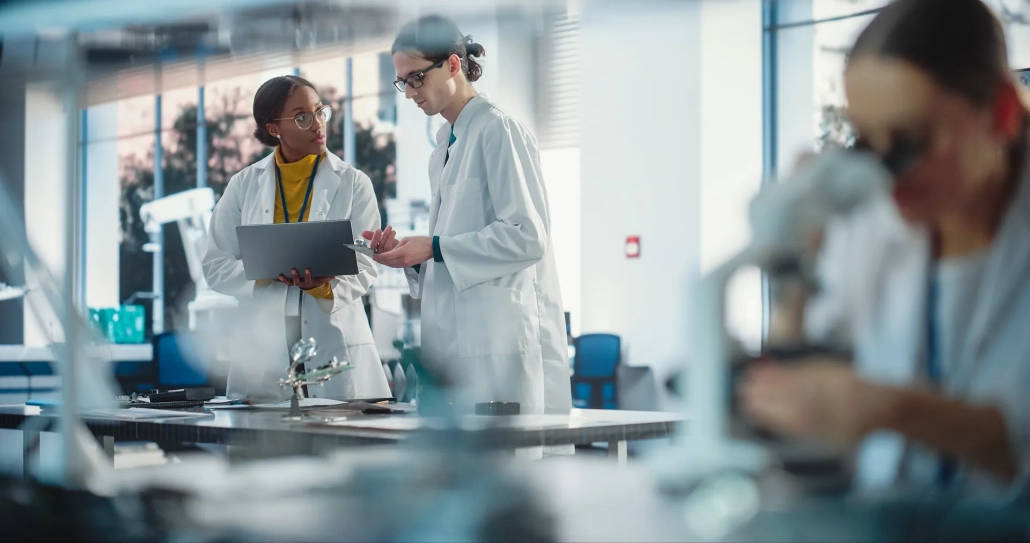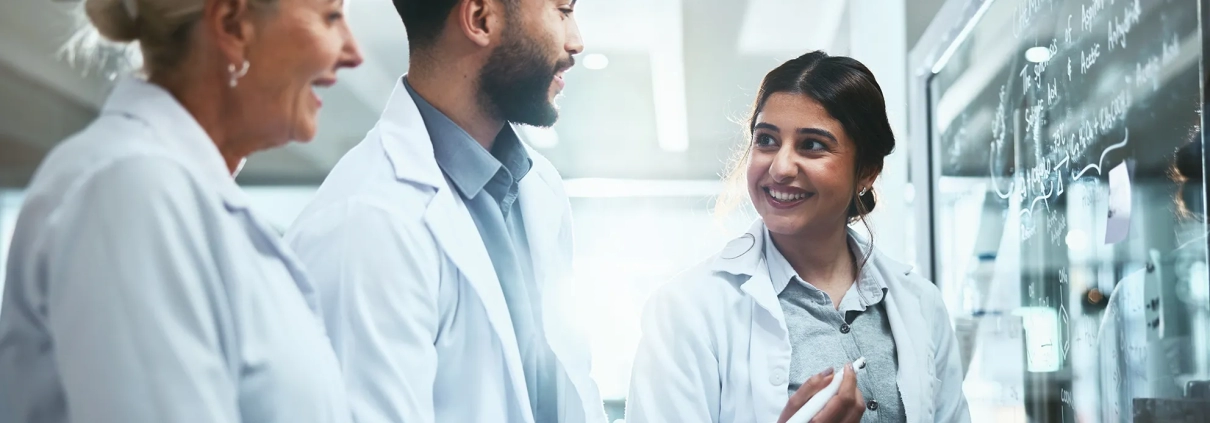New Podcast: “Beyond the Result” Spotlights the Benefits of Diagnostic Stewardship
By Stephanie Ibbotson and Molly Frazier
The first two episodes feature clinical lab veterans who share practical tips about how to launch a successful stewardship program

There’s no question that laboratory medicine has a tremendous impact across healthcare, which is why diagnostic stewardship efforts have been shown potential to improve patient care, increase efficiency in the healthcare setting, and reduce overall costs. Recently, we launched a new podcast to highlight the value of diagnostic stewardship programs. “Beyond the Result: Customizing Infectious Disease Diagnostics for Better Care” hosted by our own Angelo Rago, features conversations with leaders in laboratory medicine who have experienced perspectives on diagnostic stewardship.
His first guest was Dr. James Snyder, a professor in the Department of Pathology and Laboratory Medicine and Chief of Microbiology at the University of Louisville Hospital. Dr. Snyder set the stage with two statistics: laboratory testing accounts for less than 5% of total healthcare expenditure in the US, yet lab results influence 70% of all medical decisions. With so much impact across healthcare, laboratory teams are feeling tremendous pressure to maximize their resources and to use every resource responsibly.
Dr. James Snyder on building an effective stewardship program
Dr. Snyder mentioned that he takes advantage of every opportunity to educate his colleagues about the lab, the tests offered, and how his team can help support clinical decision-making. This has been important for advancing his team’s diagnostic stewardship program, which was launched more than six years ago. For anyone interested in implementing a similar program, he offered practical advice: first, form a multidisciplinary committee with members from as many relevant specialties as possible (his includes surgeons, internists, pharmacists, and infection control experts, in addition to the laboratory members). Second, find a champion on the hospital leadership team to ensure a long-term commitment. And third, check out helpful recommendations from the Clinical and Laboratory Standards Institute designed for this exact purpose.
Hear this and more from Dr. Snyder on Beyond the Result Episode 1: The Diagnostic Stewardship Revolution
Dr. Nathan Ledeboer on data-driven stewardship and executive support
In our second podcast episode, Angelo spoke with Dr. Nathan Ledeboer, Medical Director of Clinical Microbiology and Molecular Diagnostics at the Medical College of Wisconsin. Dr. Ledeboer has a history of implementing diagnostic stewardship, applying it in various ways for 20 years. In the early days, he said the process involved painstaking manual review of test ordering patterns to identify opportunities for improvement. However, his team has since shifted to a more prospective approach paired with clinical decision support tools to help clinicians choose the most appropriate test for each situation.
At the Medical College of Wisconsin, that shift was enabled by initiatives designed to address financial pressures caused by the COVID-19 pandemic. With the institution’s executive team looking to expand stewardship programs across many departments to improve efficiency, there was high-level attention on diagnostic stewardship. That kind of leadership buy-in, Dr. Ledeboer said, opened the doors for access to resources and support that advanced the diagnostic stewardship efforts. This included having an analyst who could mine much more information from the electronic medical record system, moving diagnostic stewardship into “turbo charge mode,” he said.
Hear this and more from Dr. Ledeboer on Beyond the Result Episode 2: Precision Without Waste
Paving the way for diagnostic stewardship, one success at a time
In his advice for other clinical lab teams, Dr. Ledeboer noted the importance of having early successes. In his case, a pilot project for a costly send-out test used by the neurology department led to a decision support tool that points clinicians to the most appropriate test, which improved the use of recommended testing and saved hundreds of thousands of dollars, Dr. Ledeboer said. It also generated enthusiasm throughout the healthcare system and showed the potential for how diagnostic stewardship could make a difference. Subsequent projects involved fecal testing, tickborne disease testing, and CNS testing. “Find areas where you have good clinician support, obvious patient benefit, and good potential for cost savings,” he recommended.
Future episodes of the Beyond the Result podcast will continue these important themes, with guests including
- Mark Zaydman, assistant professor of pathology and immunology in the Division of Laboratory and Genomic Medicine of Washington University in St. Louis
- Margie Morgan, PhD, director of clinical microbiology at Cedars-Sinai in Los Angeles
Whether you’re a healthcare executive, decision-maker, or laboratorian, “Beyond the Result” is your front-row seat to the future of diagnostics—because better diagnostics means better care.
Sign up to be notified when new episodes become available!

